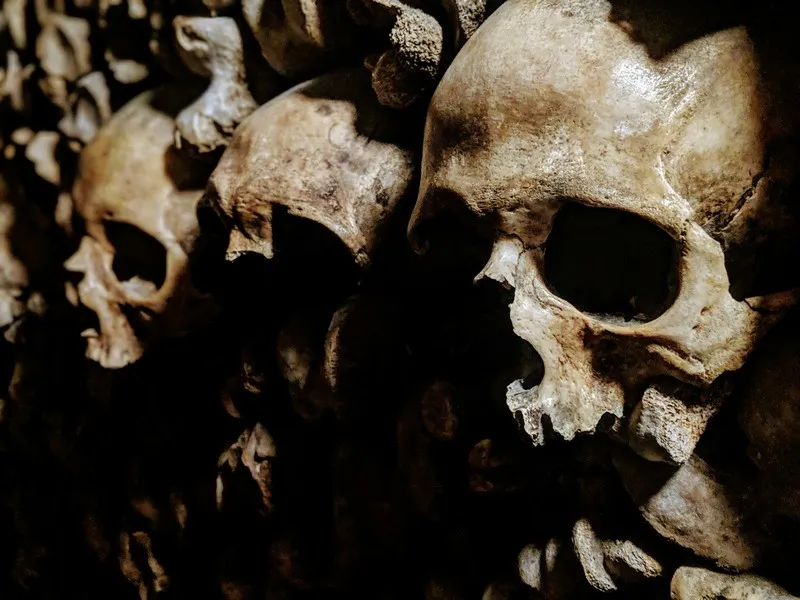Table of Contents
- Defining Magic, Witchcraft, and Sorcery
- Sociological Theories and Perspectives
- Historical Context and Evolution
- Magic, Witchcraft, and Social Identity
- Magic and Sorcery in Developing Countries
- Haitian Witchcraft: Vodou and Socio-Cultural Dynamics
- Magic, Witchcraft, and Social Change
- Conclusion
Magic, witchcraft, and sorcery have long captivated human imagination and societal structures. These phenomena are not merely relics of ancient history but continue to shape and influence contemporary cultures across the globe. Understanding these concepts through a sociological lens provides valuable insights into the ways societies construct and negotiate power, control, and belief systems. This article explores the sociological underpinnings of magic, witchcraft, and sorcery, examining their roles in social cohesion, conflict, and identity formation.
Defining Magic, Witchcraft, and Sorcery
Magic
Magic refers to the practice of manipulating supernatural forces to achieve desired outcomes. It encompasses a wide range of activities, from rituals and spells to charms and incantations. Anthropologists and sociologists have often studied magic as a system of belief that operates parallel to or in conjunction with religion and science. In many cultures, magic serves as a means of understanding and controlling the environment, providing explanations for phenomena that may otherwise seem inexplicable.
Witchcraft
Witchcraft is a form of magic that is often associated with individuals, known as witches, who are believed to possess innate supernatural powers. Witches are typically thought to use these powers for both benevolent and malevolent purposes. The concept of witchcraft has deep historical roots, with varying interpretations across different societies. In some cultures, witches are revered as healers and protectors, while in others, they are feared and persecuted as agents of evil.
Sorcery
Sorcery, like witchcraft, involves the use of supernatural powers, but it is distinct in that it usually requires learned techniques or knowledge. Sorcerers are often viewed as practitioners who have acquired their abilities through study or apprenticeship. Sorcery is frequently associated with the manipulation of objects, substances, and symbols to exert control over people and events. Unlike witches, sorcerers may not necessarily be seen as having an inherent connection to the supernatural.
Sociological Theories and Perspectives
Functionalism
From a functionalist perspective, magic, witchcraft, and sorcery can be understood as integral parts of social systems that contribute to social stability and cohesion. These practices often serve important functions in maintaining social order by providing explanations for misfortune, reinforcing social norms, and facilitating social integration. For example, in some traditional societies, rituals and magical practices are essential components of communal life, helping to establish a sense of shared identity and collective belonging.
Conflict Theory
Conflict theory, on the other hand, emphasizes the role of magic, witchcraft, and sorcery in social conflict and power struggles. These practices can be tools for both maintaining and challenging existing power structures. Accusations of witchcraft, for instance, have historically been used to marginalize and control certain groups within society. In many cases, those accused of witchcraft are individuals who challenge social norms or hold subordinate positions in the social hierarchy. Conversely, sorcery can be a means of resistance and empowerment for marginalized individuals or groups, allowing them to exert influence and challenge dominant power dynamics.
Symbolic Interactionism
Symbolic interactionism focuses on the meanings and symbols associated with magic, witchcraft, and sorcery, examining how these practices are constructed and interpreted through social interactions. This perspective highlights the importance of subjective experiences and the ways in which individuals and groups assign meaning to supernatural phenomena. Through rituals, symbols, and narratives, societies create and sustain the cultural frameworks that give magic, witchcraft, and sorcery their significance. This process of meaning-making is dynamic and constantly evolving, reflecting broader social changes and cultural shifts.
Historical Context and Evolution
Pre-modern Societies
In pre-modern societies, magic, witchcraft, and sorcery were often integral to religious and cultural practices. These phenomena were deeply embedded in the fabric of everyday life, shaping social roles, community relationships, and cosmological understandings. Shamans, priests, and other ritual specialists played crucial roles in mediating between the human and supernatural realms, using their knowledge and skills to heal, protect, and guide their communities.
The Witch Hunts
The witch hunts of the early modern period in Europe and North America represent a significant chapter in the history of witchcraft. These events were marked by widespread fear, paranoia, and the persecution of thousands of individuals, mostly women, accused of witchcraft. The witch hunts can be understood as a manifestation of broader social, economic, and political tensions, including religious conflicts, social anxieties, and the consolidation of state power. The legacy of the witch hunts continues to shape contemporary perceptions of witchcraft and sorcery, highlighting the enduring impact of historical events on social attitudes and beliefs.
Modern and Contemporary Contexts
In modern and contemporary contexts, magic, witchcraft, and sorcery continue to evolve and adapt to changing social and cultural landscapes. While some aspects of these practices have been marginalized or relegated to the realm of folklore, others have experienced resurgence and transformation. New religious movements, neo-paganism, and the popularization of occult practices are examples of how magic and witchcraft are being reinterpreted and revitalized in contemporary society. These developments reflect broader trends in spirituality, identity formation, and the search for meaning in an increasingly complex and fragmented world.
Magic, Witchcraft, and Social Identity
Get the full article AD FREE. Join now for full access to all premium articles.
View Plans & Subscribe Already a member? Log in.





